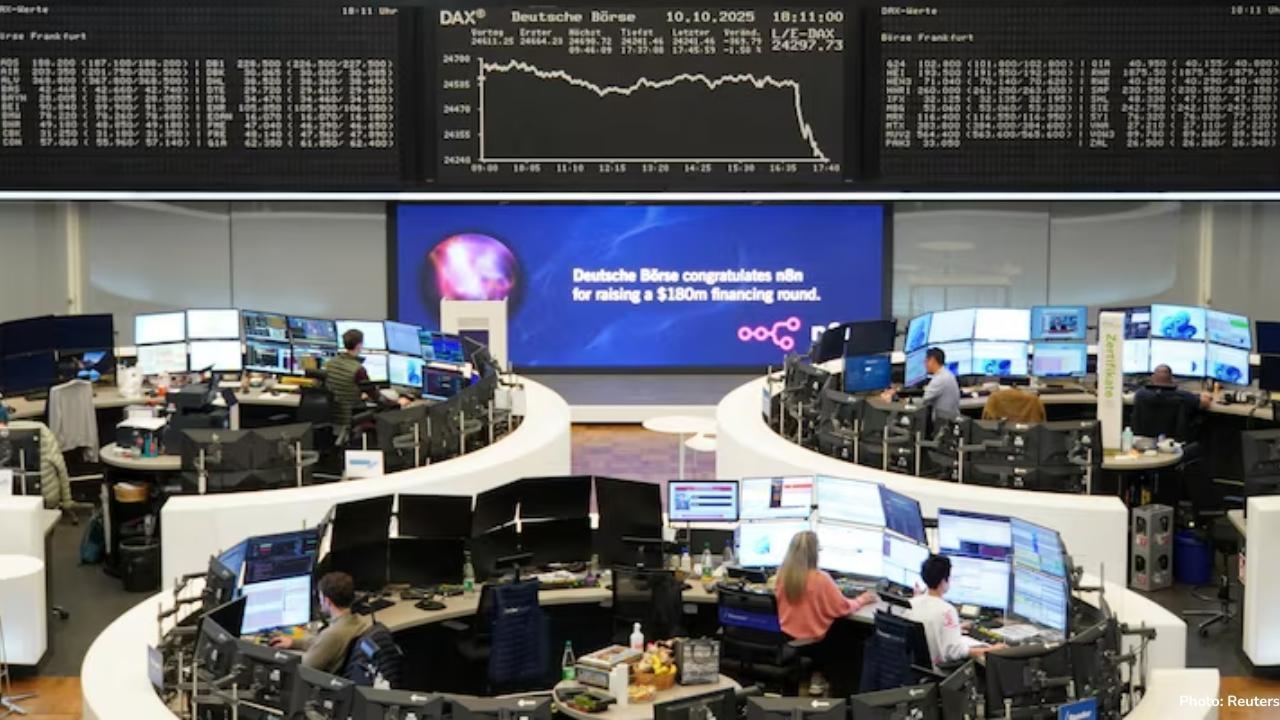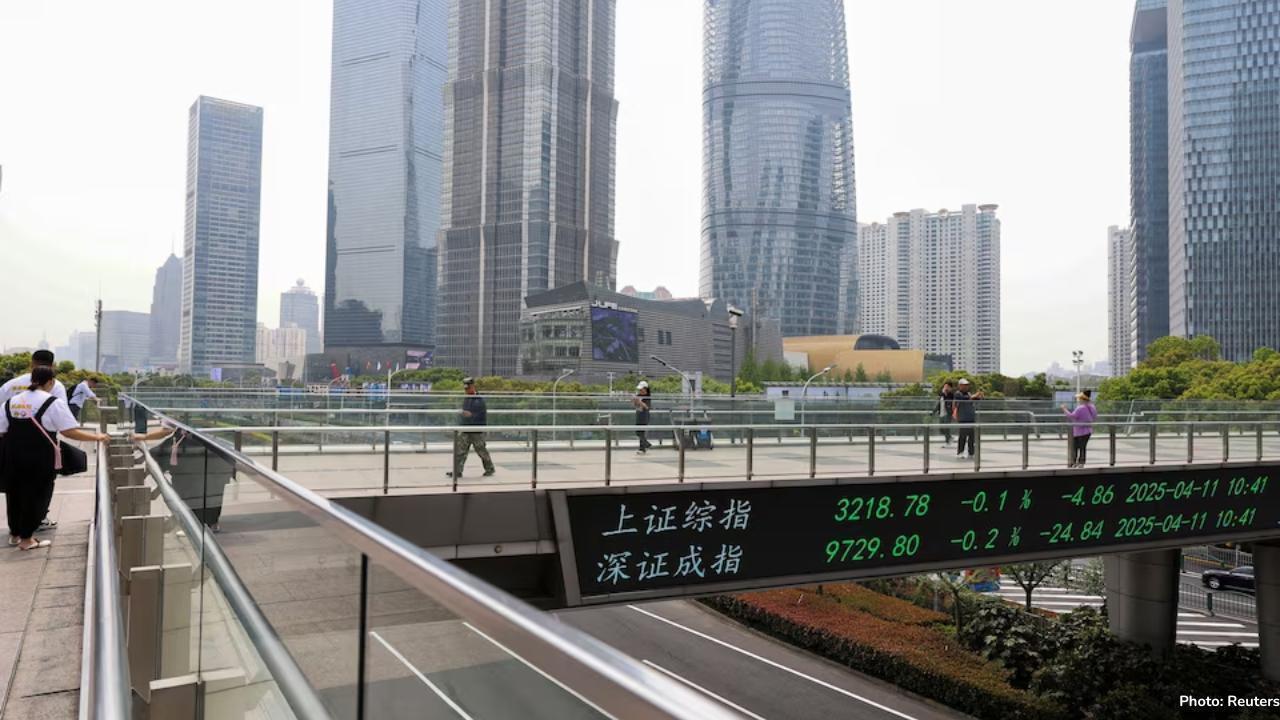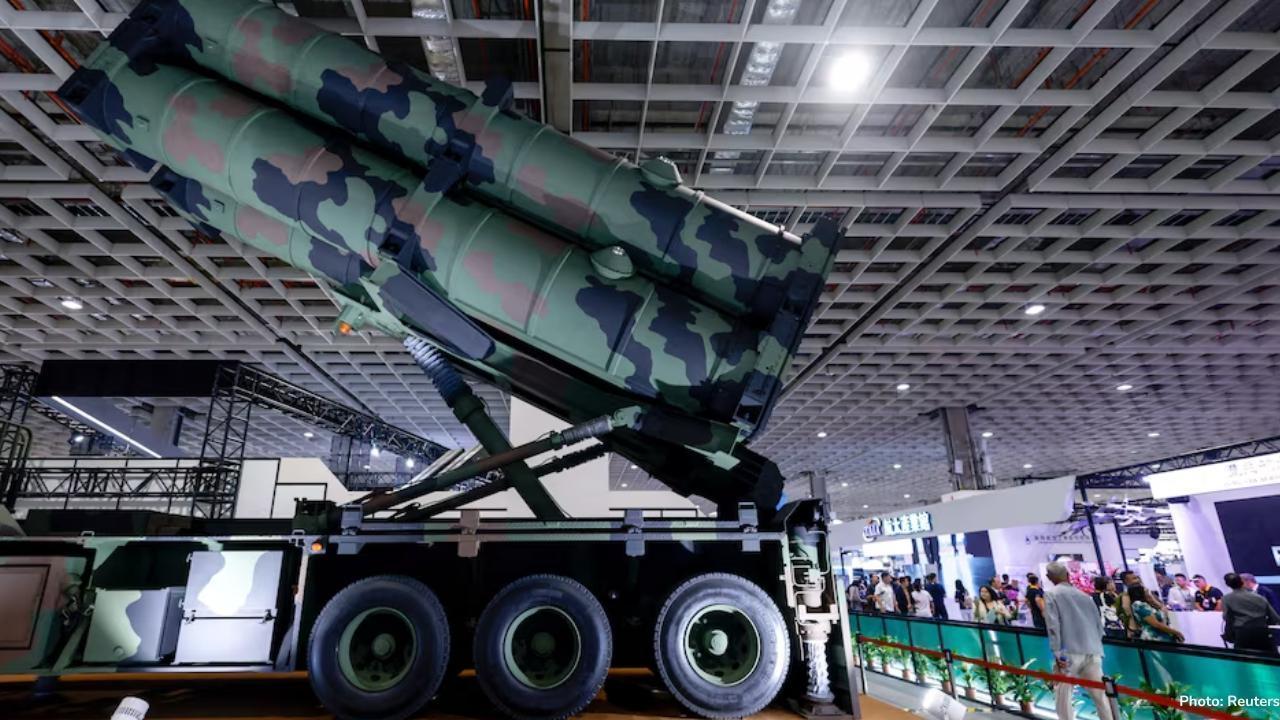
Post by : Monika
In October 2025, President Donald Trump reignited tensions with China by threatening to impose 100% tariffs on Chinese imports and introducing new export controls on critical software. This move has sent shockwaves through global markets and overshadowed the annual meetings of the International Monetary Fund (IMF) and the World Bank in Washington, D.C.
Background of the Trade Dispute
The U.S.-China trade relationship had shown signs of improvement earlier in the year, with both nations reducing tariffs and planning a summit between Presidents Trump and Xi Jinping. The IMF even raised its global growth forecast to 3.0% for 2025, citing this newfound cooperation. However, recent developments have reversed this progress.
China's decision to expand export controls on rare earth materials, essential for various high-tech industries, prompted the U.S. to respond with its own set of retaliatory measures. These actions have reignited fears of a full-blown trade war between the world's two largest economies.
Impact on Global Markets
The renewed trade tensions have led to significant market volatility. Chinese stock indices, such as the CSI300 and Shanghai Composite, experienced sharp declines. In contrast, China's rare earth and semiconductor stocks saw gains due to their strategic importance in the ongoing conflict.
The U.S. dollar weakened following President Trump's aggressive trade policies, although he later attempted to ease concerns by expressing intentions to support China. Oil prices also rebounded slightly as investors focused on potential easing of trade tensions.
Disruption of IMF and World Bank Meetings
The IMF and World Bank meetings, which were initially set to focus on global economic resilience, have been overshadowed by the escalating U.S.-China trade war. Finance ministers and central bankers from over 190 countries gathered in Washington to discuss economic stability, but the trade dispute has dominated discussions.
U.S. Treasury Secretary Scott Bessent emphasized the need to refocus IMF and World Bank efforts on economic stability, rather than climate or gender issues, and pushed for stronger criticism of China's economic policies. Analysts warn that this could lead to growing U.S. influence over IMF decisions, potentially compromising its multilateral mission.
Potential for De-Escalation
Despite the heightened tensions, there are signs that both the U.S. and China may seek to de-escalate the situation. President Trump has expressed a desire to support China and avoid a depression, and both nations are expected to resume negotiations. Analysts believe that the current phase of volatility may be shorter than earlier episodes, as both countries are likely to scale back their most aggressive policies and extend a tariff truce.
The renewed trade war between the U.S. and China has disrupted global financial markets and overshadowed important international meetings. While both nations have taken aggressive actions, there is hope that diplomatic efforts will lead to a resolution and restore stability to the global economy.
Trump trade war US China tariffs IMF World Bank meetings










Global Markets Show Mixed Signals Amid Trade Tensions
Global markets react cautiously to renewed U.S.-China trade tensions, with European stocks steady an

Canal+ Plans Secondary Listing in Johannesburg After MultiChoice Deal
Canal+ to list shares on Johannesburg Stock Exchange after acquiring MultiChoice for $2 billion, aim

Oxford Instruments Faces Challenges Amid Tariff Disruptions
Oxford Instruments warns of flat annual revenue and profit due to tariff disruptions and economic un

World Markets Calm After Trade Worries; Gold Hits Record High
Global markets steadied after trade tensions eased. Gold prices reached new highs, and European stoc

Taiwan Builds T-Dome to Stop Enemy Missiles Quickly
Taiwan’s new T-Dome system links sensors and missiles for faster, smarter defense to protect against

Trump's Trade War Escalates, Disrupting IMF and World Bank Talks
President Trump's renewed trade war with China, including 100% tariffs and export controls, overshad